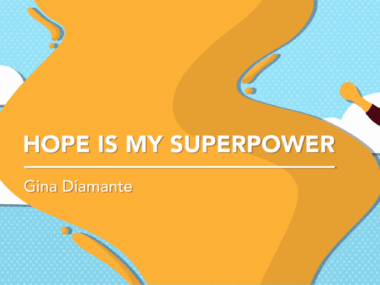When it comes to medical jargon, where’s my secret decoder ring?
Multiple myeloma patients are often confronted with confusing terminology
Written by |

I see a lot of jargon in my line of work. A big part of my job is helping reporters translate it into something our audience will understand. Sometimes I look at a news release and struggle to figure out what story the public relations rep is pitching. Or an unfamiliar word or phrase might stop me cold.
This week’s phrase was “opportunistic sand.”
It was in a reporter’s pitch for a story about a sand replenishment project at a local beach. I understood the replenishment part, but not “opportunistic,” so I green-lit the story with the direction: “Find out what that means!”
(Another reporter thought it would be a good band name.)
The conversation reminded me of all the medical jargon I’ve learned since my multiple myeloma diagnosis six years ago. There are lots of phrases and acronyms and a veritable alphabet soup of initials for different treatment combinations. It can confuse patients who’ve just entered “The Land of ‘I Don’t Know’” and are trying to understand this disease.
It can be especially hard when you wander into an online support group with members throwing around terms like “D-VRd,” “SCT,” and “CyBorD,” which sounds like the robots are coming. I told people I needed a secret decoder ring!
Figuring out what’s next
I’ve become pretty good with myeloma jargon over the years. I know that “D-VRd” means “daratumumab, Velcade, Revlimid, and dexamethasone,” a typical treatment for newly diagnosed myeloma. “SCT” stands for “stem cell transplant,” essentially resetting the patient’s production of plasma cells. And “CyBorD” has nothing to do with robots! It’s an acronym for Cytoxan, bortezomib (aka Velcade), and dexamethasone. That’s the treatment I was put on at diagnosis, followed by SCT and “maintenance,” which is additional treatment (Revlimid, in my case) to keep the cancer at bay.
I remember that early confusion whenever I meet a newly diagnosed patient online or in person. They might have reams of paperwork along with their prescriptions, as I did. But it can be tough to pore through it all to figure out what’s next.
I still don’t have a decoder ring, but I do have lots of bookmarked resources to point those new patients to. For example, Rare Cancer News has a page explaining the many treatments, and it’s updated as new ones are approved, such as Blenrep (belantamab mafodotin-blmf), which was OK’d by the U.S. Food and Drug Administration in late October.
The International Myeloma Foundation is another favorite resource of mine. They’ve got an extensive online glossary of myeloma terms which includes some selected acronyms. There’s also a brief guide to acronyms on the Healthtree Foundation website.
Ideally, patients also get good explanations from their doctors. But I remember how overwhelmed I felt in the early going. Sometimes things made the proverbial trip in one ear and out the other. And sometimes I was afraid to ask a question because I was scared of the answer — or because I didn’t want to seem dumb.
Now I remind myself there is no such thing as a stupid question. Asking questions is the way to navigate “The Land of ‘I Don’t Know.’”
It’s also the way to learn what “opportunistic sand” means! It’s the sand you get from dredging waterways or excavating construction sites.
And maybe someday it’ll be the name of a band!
Note: Rare Cancer News is strictly a news and information website about the disease. It does not provide medical advice, diagnosis, or treatment. This content is not intended to be a substitute for professional medical advice, diagnosis, or treatment. Always seek the advice of your physician or other qualified health provider with any questions you may have regarding a medical condition. Never disregard professional medical advice or delay in seeking it because of something you have read on this website. The opinions expressed in this column are not those of Rare Cancer News or its parent company, Bionews, and are intended to spark discussion about issues pertaining to rare cancer.





Leave a comment
Fill in the required fields to post. Your email address will not be published.